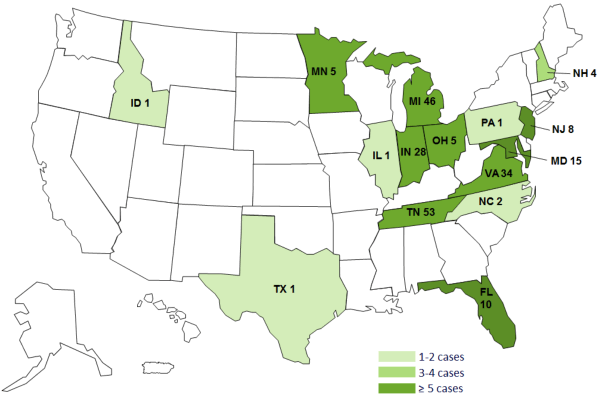Medical professionals nationwide are on the alert for a deadly meningitis outbreak, which U.S. health officials believe is caused by a fungus-tainted steroid. Officials with the Centers for Disease Control warn that as many as 17,000 people in 23 states may have received the contaminated medication.
Lopez McHugh is investigating cases related to this outbreak. If you or a loved one had an injection and were diagnosed with meningitis, you should contact a Lopez McHugh lawyer for a free consultation. If you have any health concerns, you should contact a health professional immediately.
The steroid at issue, called methylprednisolone acetate, is commonly injected as an epidural (into the spinal cord) to treat back pain. The New England Compounding Center in Framingham, Mass., manufactured the steroid. It ceased operations on October 3. On October 15, 2012, the FDA gave an update warning that a second product manufactured by the New England Compounding Center, has been linked to fungal meningitis. Triamcinolone acetonide is also commonly used as an epidural steroid.
Workers linked to meningitis pharmacy had concerns
Former workers at the Compounding Center raised safety concerns before the outbreak, according to the New York Times.
“Six former employees, five from Ameridose and one from New England Compounding, described a corporate culture that encouraged shortcuts, even when that meant compromising safety,” the New York Times says.
According to the story, the former employees raised the following concerns:
- One pharmacist quit because she was worried that unqualified people were helping prepare dangerous narcotics for use by hospitals.
- A quality control technician was overruled by management when he tried to stop the production line because he noticed that some labels were missing.
- A salesman and his colleagues were brought into the sterile lab to help out with packaging and labeling during rush orders, which they were not trained for.
Ongoing Investigation
Although investigators are still looking into the precise cause of the infection, they’ve confirmed that all of the people who became sick received injections containing medication from the New England Compounding Center. Further, this center has reportedly been investigated in the past.
Meningitis is serious, and a quick diagnosis is important. A jury in Florida recently awarded $28.45 million in the case of a six-year-old boy who was injured after two doctors failed to realize that his persistent fevers were caused by meningitis.
To date, the fungal meningitis has infected over 200 people in fifteen states, and resulted in 15 deaths.
According to the CDC, meningitis is a potentially lethal inflammation of the protective membranes covering the brain and spinal cord. Unlike the more common forms caused by viruses and bacteria, the fungal meningitis identified in the outbreak is not contagious.
But medical professionals say it’s particularly dangerous because the tainted medication is injected into the spine, which gives the infection a direct path to the brain.
Many states potentially affected
According to the CDC, the following states have received the suspected steroid: California, Connecticut, Florida, Georgia, Idaho, Illinois, Indiana, Maryland, Michigan, Minnesota, New Hampshire, New Jersey, Nevada, New York, North Carolina, Ohio, Pennsylvania, Rhode Island, South Carolina, Tennessee, Texas, Virginia and West Virginia.
The CDC notes that, symptoms of fungal meningitis are similar to those of other forms of meningitis, but they tend to appear more gradually and can be very mild at first. Typical meningitis symptoms include headache, fever, nausea, and stiffness of the neck. In addition, people with fungal meningitis may experience confusion, dizziness, and discomfort from bright lights.
The CDC says patients might just have one or two of these symptoms, which generally start one to four weeks after the injection, but that not everyone who received the medicine will become sick. Patients who had the injections should seek medical help if they experience fever, new or worsening headache, neck stiffness, sensitivity to light, new weakness or numbness, increasing pain, and redness or swelling of the injection site.
Cases have been reported in Florida, Idaho, Illinois, Indiana, Maryland, Michigan, Minnesota, New Hampshire, New Jersey, North Carolina, Ohio, Pennsylvania, Tennessee, Texas, and Virginia.
This promises to be a very fast moving issue and Lopez McHugh will work to stay at the forefront as news continues to break. Follow our updates here for the latest information.
See more information from the CDC at https://www.cdc.gov/HAI/outbreaks/meningitis.html.
Update: Second illness now striking those already injured by contaminated steroids
The New York Times is reporting that a second illness is now presenting in patients that have been infected with fungal meningitis from contaminated steroids. Lopez McHugh continues to follow this rapidly evolving situation. You can read more about this second illness here.

